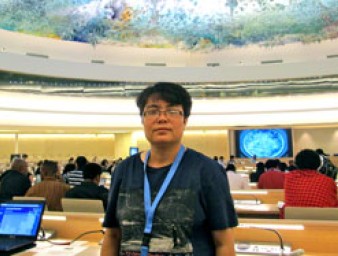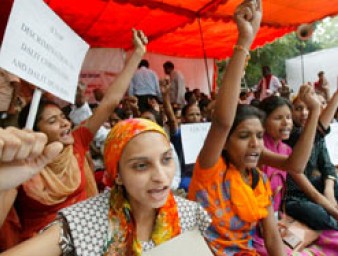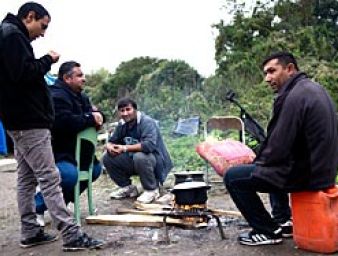Empowering Roma in rural Hungary
25 April 2013
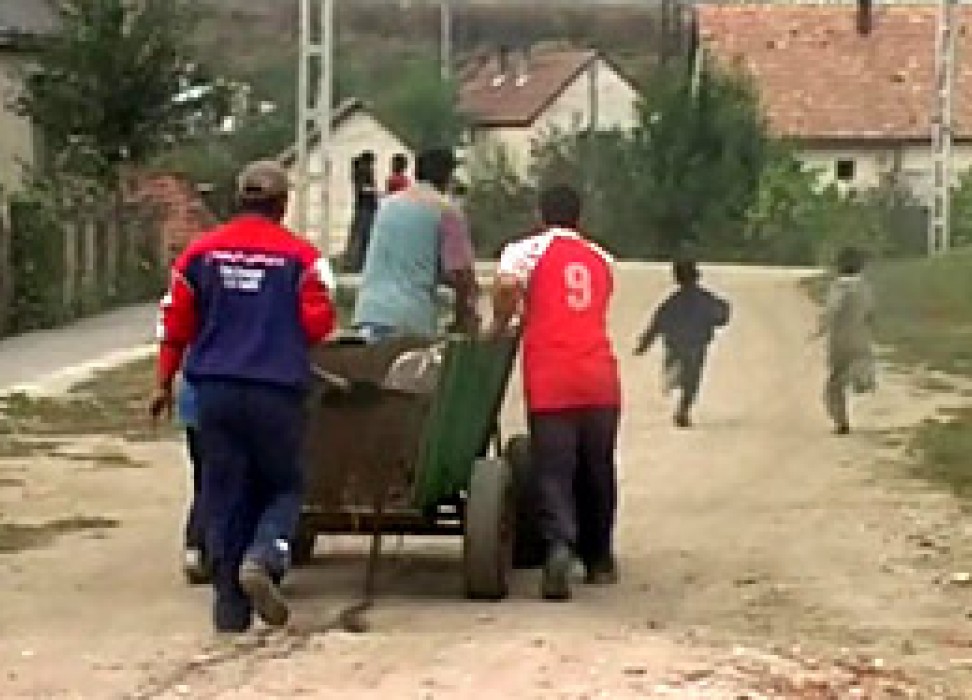
Small villages of colourful houses amidst gently rolling hills of the Cserehát region in north-eastern Hungary, some 200 kilometers from Budapest, evoke the poetic rural paintings of Imre Bukta, one of Hungary’s best-known contemporary painters. Many of the inhabitants are Roma. In some of the villages, they have gradually become a majority.
"At first glance, this is the pretty face of poverty," says Márta Marczis, from the United Nations Development Programme (UNDP) who launched the Cserehát Program some eight years ago. “It’s not a depressive sight like in so many other places in Europe. In Cserehát, Roma do not live in containers, in urban or rural ghettoes, or in huts around urban garbage dumps. Their little houses are poor, but they actually look quite idyllic, at least from a distance.”
However, the first glance is somewhat deceptive. László Siroki, a young Roma filmmaker and local coordinator of the Hungarian Civil Liberties Union in the village of Tomor, says the human rights situation of Roma in Cserehát has worsened in recent years. Siroki believes this is at least partly due to the emergence of the nationalist political party Jobbik; some members of Jobbik made statements against Roma.
Siroki points out too, that Roma also suffer harrassment from the police – and that challenging such practices forms the bulk of his human rights work in the Cserehát region. “Roma often get absurd fines that no one else would get,” says Siroki. “They get fined for children playing in a park, for collecting mushrooms in the forest, or even for technical deficiencies of their bicycles.”
Another significant problem, according to Siroki, is the frequent abusive control of documents. “In Hungary, the police can still take your personal documents whenever they want, without giving any reason for it,” explains László. “They often routinely ask Roma – and only them – to show their papers.”
As Márta Marczis explains, the economic situation adds to the problem. The Cserehát has long been one of the poorest regions in Hungary and the Roma were most affected by the closure of industries and cooperatives in the early 1990s. Most have been unemployed ever since. Unlike some other Eastern European countries, Hungary’s social welfare system has long alleviated the worst extremes of absolute poverty but very few of today’s generation of young Roma from the Cserehát region remembers anyone from their families having regular paid work.
However, there is some good news. Step by step, small-scale initiatives established by the Cserehát Program have grown and attracted further investment. An architect by background, Marczis had worked with the Roma in the Cserehát even before she became involved with UNDP. She is a firm believer in a gradual “bottom-up” approach rather than in massive “top-down” projects which offer little consideration of local circumstances or of people’s needs.
Imre Mata, better known under the nickname “Zorro”, is a middle-aged Romani leader of a successful social enterprise originally supported by the Cserehát Programme and in existence for many years. “We started by bringing a number of Roma from informal work to formal jobs in the forestry sector,” recalls Zorro. “In time, we have also trained several persons to work outside the social enterprise on the open labor market. This is good for them, but of course it means we lose them.”
The Hungarian Government, too, has recently introduced a system of public works for long-term unemployed people, many of whom are Roma. “We are using these public works to develop skills for the mainstream labor market,” explains József Fuzesseri, the Mayor of the small town of Szikszó.
“Many local authorities seem to perceive these public works as the appropriate permanent place for Roma in society, however, it is not a real job. It provides very low pay (some 140 USD per month), no proper contract, and offer no opportunities for career growth,” says Jan Jařab, the Regional Representative for Europe of the UN High Commissioner for Human Rights.
“If not used as a transitional measure to enable participation in real jobs, the system of public works could lead to something like a caste system based on ethnicity,” Jařab has warned, at meetings with local authorities and Roma activists. He also notes that those who have not managed to get such public work have seen their welfare benefits reduced, and are pushed deeper into poverty.
“Roma are still very far from achieving effective equality in Hungary and the double challenge of ethnically defined nationalism and the economic crisis risks undermining even the modest achievements of the past,” Jařab says.
25 April 2013
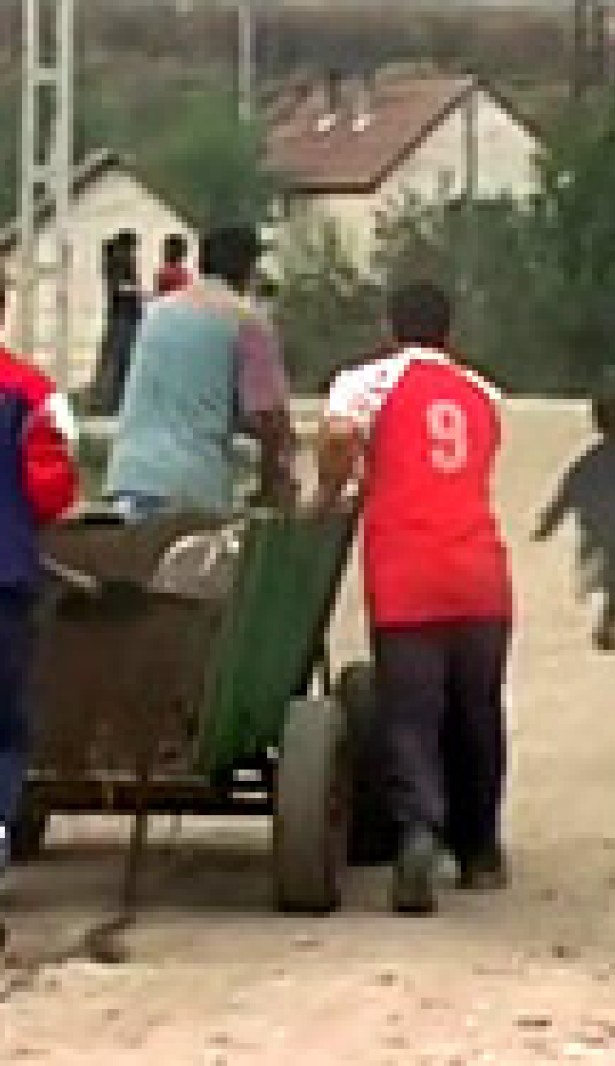
VIEW THIS PAGE IN:
